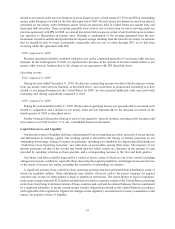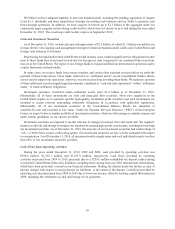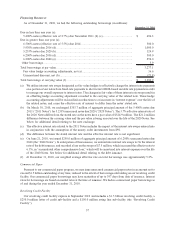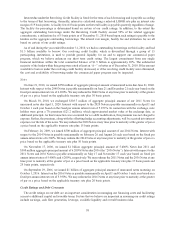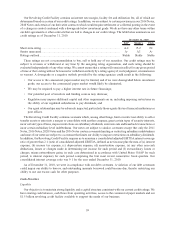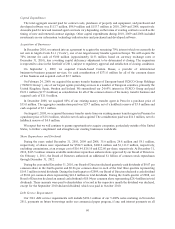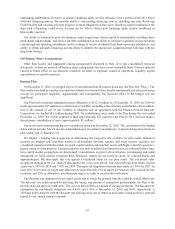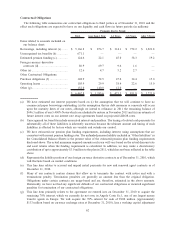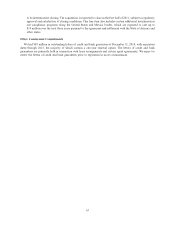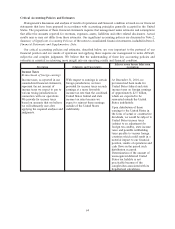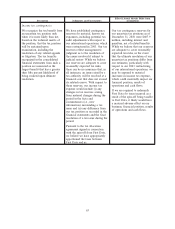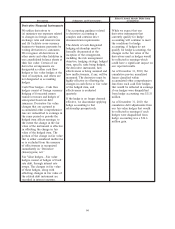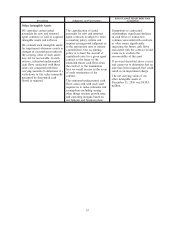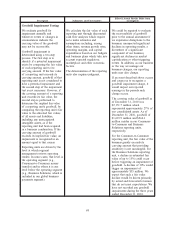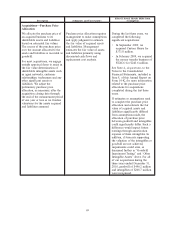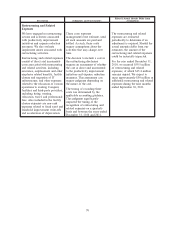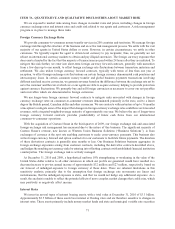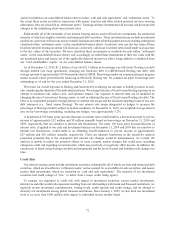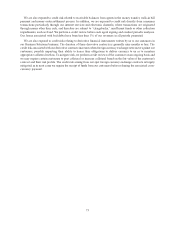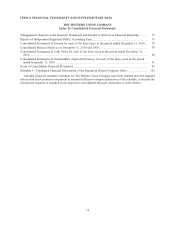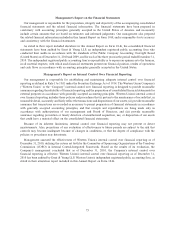Western Union 2010 Annual Report Download - page 67
Download and view the complete annual report
Please find page 67 of the 2010 Western Union annual report below. You can navigate through the pages in the report by either clicking on the pages listed below, or by using the keyword search tool below to find specific information within the annual report.
Description Judgments and Uncertainties
Effect if Actual Results Differ from
Assumptions
Income tax contingencies
We recognize the tax benefit from
an uncertain tax position only
when it is more likely than not,
based on the technical merits of
the position, that the tax position
will be sustained upon
examination, including the
resolution of any related appeals
or litigation. The tax benefits
recognized in the consolidated
financial statements from such a
position are measured as the
largest benefit that has a greater
than fifty percent likelihood of
being realized upon ultimate
resolution.
We have established contingency
reserves for material, known tax
exposures, including potential tax
audit adjustments with respect to
our international operations, which
were restructured in 2003. Our tax
reserves reflect management’s
judgment as to the resolution of
the issues involved if subject to
judicial review. While we believe
our reserves are adequate to cover
reasonably expected tax risks,
there can be no assurance that, in
all instances, an issue raised by a
tax authority will be resolved at a
financial cost that does not exceed
its related reserve. With respect to
these reserves, our income tax
expense would include (i) any
changes in tax reserves arising
from material changes during the
period in the facts and
circumstances (i.e., new
information) surrounding a tax
issue and (ii) any difference from
our tax position as recorded in the
financial statements and the final
resolution of a tax issue during the
period.
Our tax contingency reserves for
our uncertain tax positions as of
December 31, 2010 were $607.9
million, including interest and
penalties, net of related benefits.
While we believe that our reserves
are adequate to cover reasonably
expected tax risks, in the event
that the ultimate resolution of our
uncertain tax positions differ from
our estimates, particularly with
respect to our 2003 restructuring
of our international operations, we
may be exposed to material
increases in income tax expense,
which could materially impact our
financial position, results of
operations and cash flows.
If we are required to indemnify
First Data for taxes incurred as a
result of the spin-off being taxable
to First Data, it likely would have
a material adverse effect on our
business, financial position, results
of operations and cash flows.
Pursuant to the tax allocation
agreement signed in connection
with the spin-off from First Data,
we believe we have appropriately
apportioned the taxes between
First Data and us.
65


